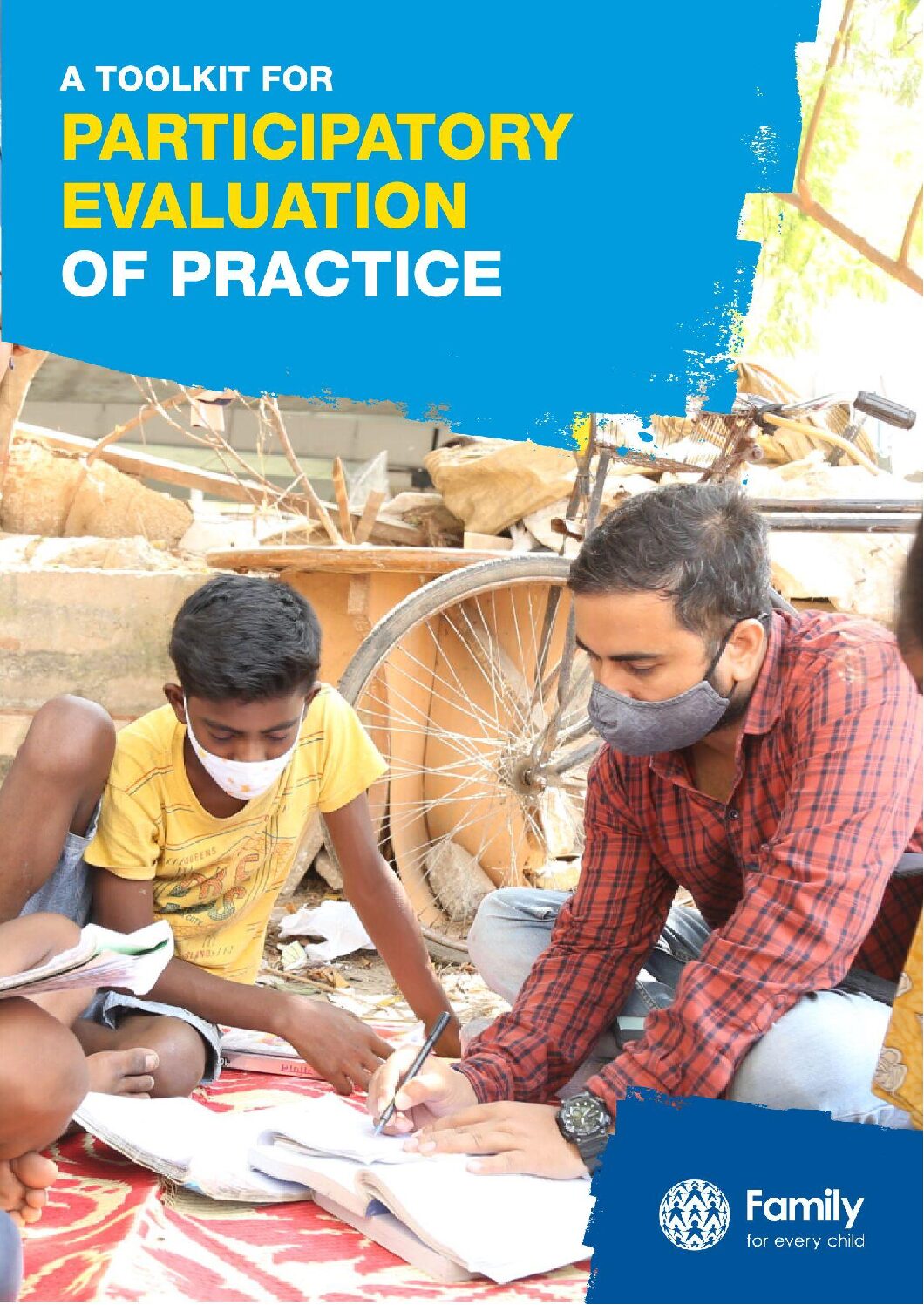Empowering Change: A Guide to Participatory Evaluation in Humanitarian Action
Family for Every Child’s Toolkit for Participatory Evaluation of Practice resource is a guide for humanitarian and social change practitioners working in civil society organizations (CSOs) and non-governmental organizations (NGOs). This rich guide displays and elaborates on a wide array of programmatic data collection, analysis, monitoring, evaluation, and learning tools that are rooted in centering affected communities’ perspectives at every decision-making level and step of program design and implementation.
The Toolkit’s methodologies and InterAction’s Action-Based Research Initiative
Results-based protection outcomes are reached through adaptable tools whose application necessitates inclusive engagement of the populations being served by humanitarian actors. Family for Every Child’s Toolkit for Participatory Evaluation of Practices reflects tools that facilitate continuous and contextually specific risk analysis that is reiterative. Additionally, the guide demonstrates how each tool is adaptable for diverse programming initiatives’ populous needs, staff capacity, and program timeframes.
Within InterAction’s Action-Based Research on Conflict-Induced Food Insecurity and protection initiative in Colombia, Somalia, and Niger (ABR), many of the participatory methods and tools advocated for in the Family for Every Child’s Toolkit for Participatory Evaluation of Practices are being actively deployed to empower local and international NGOs in adopting outcome-oriented approaches to program design, implementation, evaluation and learning. InterAction’s ABR initiative, paralleling Family for Every Child’s toolkit, emphasizes the criticality of qualitative data extraction and analysis through methods such as storytelling, face-to-face data collection, outcome harvesting, and results journals/diaries. Family for Every Child’s toolkit supports results-based protection approaches to addressing and reducing roots of protection risks by promoting qualitative approaches to community research and engagement. These approaches and tools are aimed at deciphering interlinked protection risks that oftentimes compound each other.
Centering the perspectives of affected communities
Incorporating the feedback and involvement of communities in humanitarian action into all program planning, design, and evaluation steps is pivotal in producing adaptable, evidence-informed, and inclusive programming. Marginalized groups, such as children and the elderly, whose voices are commonly disempowered due to pre-existing societal power imbalances, must be heard, and included in all data collection, monitoring, evaluation, and learning initiatives within projects. Change Makers for Children’s toolkit, geared towards internal staff within CSOs and NGOs, recognizes that internal staff are better suited to meaningfully engage with communities. Hence, this toolkit champions organizations’ investment in internal staff empowerment and learning, favoring participatory methods of engagement by staff over external consultancy models. This approach ultimately fosters a renewed sense of ownership among staff around the programs they work on. Humanitarians’ sense of connection and ownership towards their work is paramount in cultivating outcomes that are meaningful to affected communities.
Conclusion on the toolkit
In summary, the Family for Every Child’s Toolkit for Participatory Evaluation of Practice is an indispensable resource for field-facing humanitarian staff looking to strengthen program outcomes through meaningful participation of affected communities in program design, implementation, and evaluation. This guide prioritizes incorporation of marginalized groups, offering diverse methodologies geared towards amplifying the perspectives that are missing and needed for shaping effective programming. Its synergy with qualitative methodologies from InterAction’s ABR initiative underscores the toolkit’s alignment with results-based protection and its relevance in tackling complex and interlinked humanitarian phenomena, such as conflict-induced food insecurity or gender-based violence. Through embracing participatory methods and empowering internal staff, this toolkit not only enhances program quality, but also fosters an invaluable and power-sharing sense of ownership among practitioners and communities, leading to outcomes that are authentic to the dire needs of communities.
